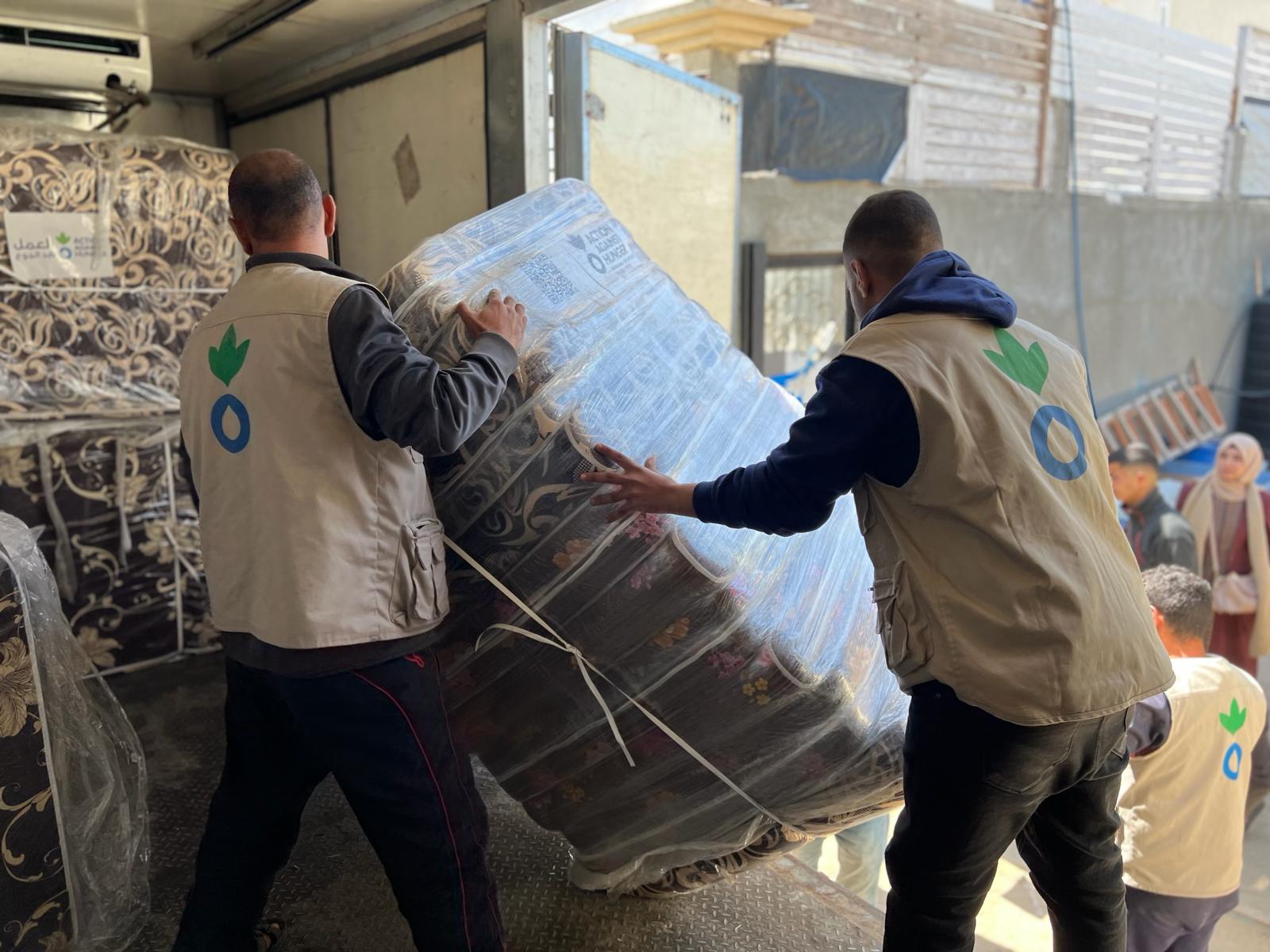Six months into the conflict, the war in Gaza continues to inflict immeasurable suffering on over 2 million Palestinians: causing death, starvation, and displacing the nearly all of Gaza’s population.
Since 7 October, Action Against Hunger has reached over 800,000 people in Gaza. In the face of extremely challenging security conditions and hardship, our teams in Gaza work tirelessly to provide food, water, sanitation and hygiene services, and protection to the population in Gaza.
“Malnutrition, dehydration, and starvation target the most vulnerable. The risk is much higher the younger the child. Women in Gaza are struggling to breastfeed. Any effort to ensure access to safe drinking water should also include efforts to supply non-breastfed infants with ready-to-use formula, alongside nutrients”, expresses Natalia Anguera, Action Against Hunger’s Head of Operations for the Middle East.
“After overcoming many challenges, we are about to launch a nutrition programme. We aim to reach every month over 13,000 children and lactating women in the Strip by distributing supplementary nutrients to prevent them from becoming malnourished,” adds Natalia Anguera.
The conflict in Gaza has led over 1 million people to face catastrophic levels of food insecurity – a single step away from famine.
Widespread and intense violence has forced 85 per cent of the population in the Gaza Strip to flee their homes. More than 80 per cent of households lack access to safe and clean water and in northern Gaza, while people go entire days and nights without eating.
Action Against Hunger’s emergency staff in Gaza have reported overcrowded shelters and an astonishing number of children alone without relatives with nowhere safe to go.
“The catastrophe in Gaza is only worsening and we must do everything we can to prevent further death, hunger, and destruction. Famine is preventable if there is an immediate cessation of hostilities and an immediate and permanent ceasefire”, expresses Olivier Longué, Action Against Hunger’s General Director.
“The numbers of humanitarian staff killed – at least 196 deaths since 7 October – prevent the assurance of safety and access for humanitarian workers to carry out their jobs. The protection of aid workers is not only vital to respond to the pressing needs of the population but is also a fundamental obligation under International Humanitarian Law”, concludes Olivier Longué.
The conditions in Gaza are ripe for an explosion of deadly diseases such as cholera, with 75 five per cent of solid waste getting dumped and streets becoming more flooded with the accumulation of sewage water.


